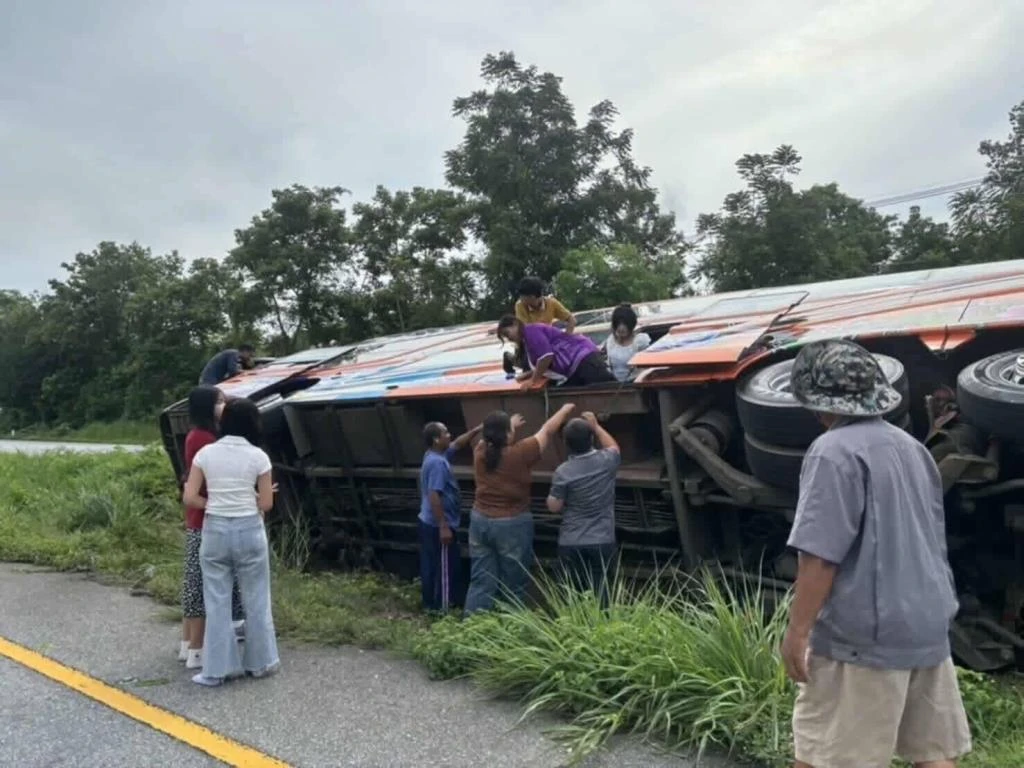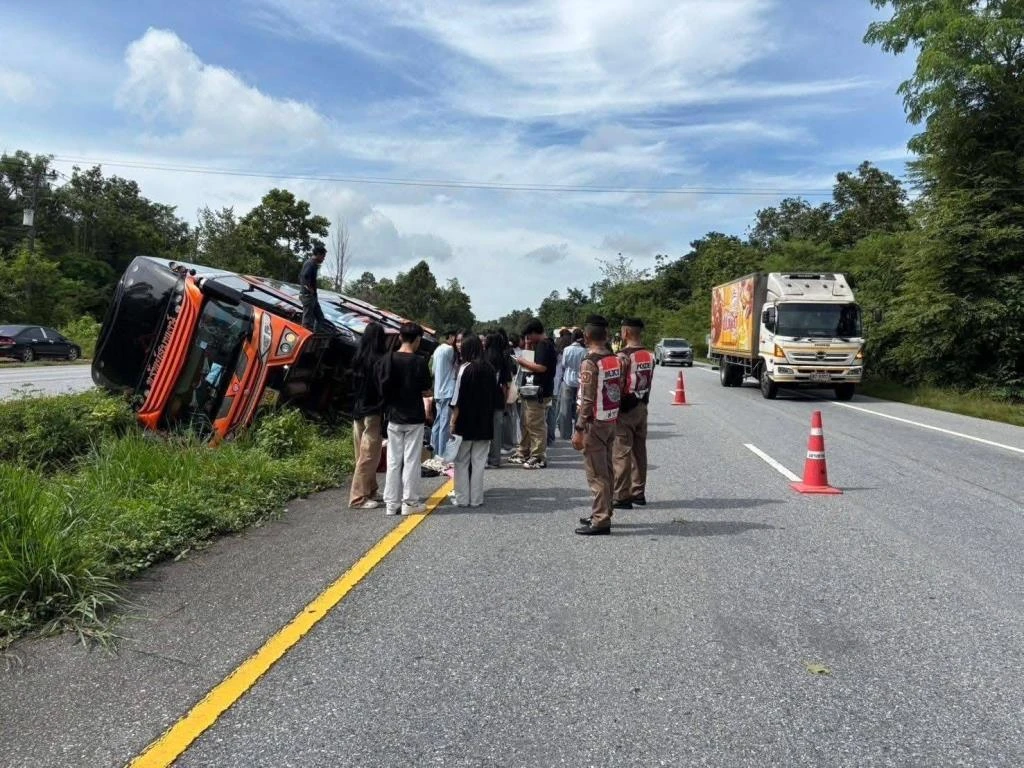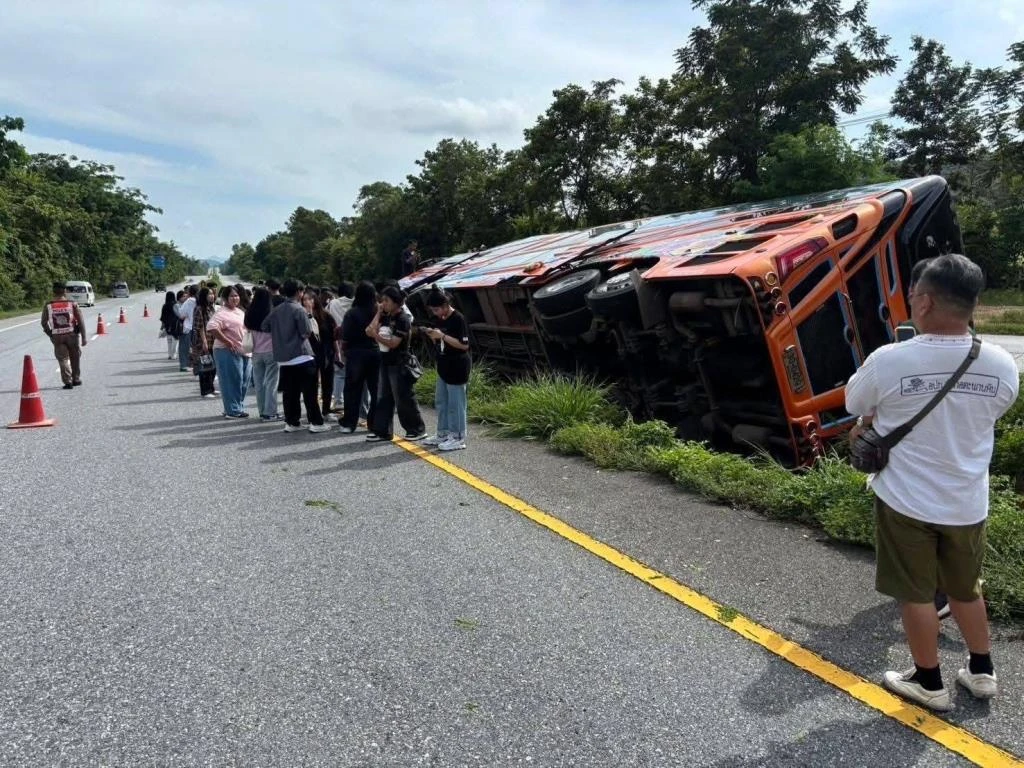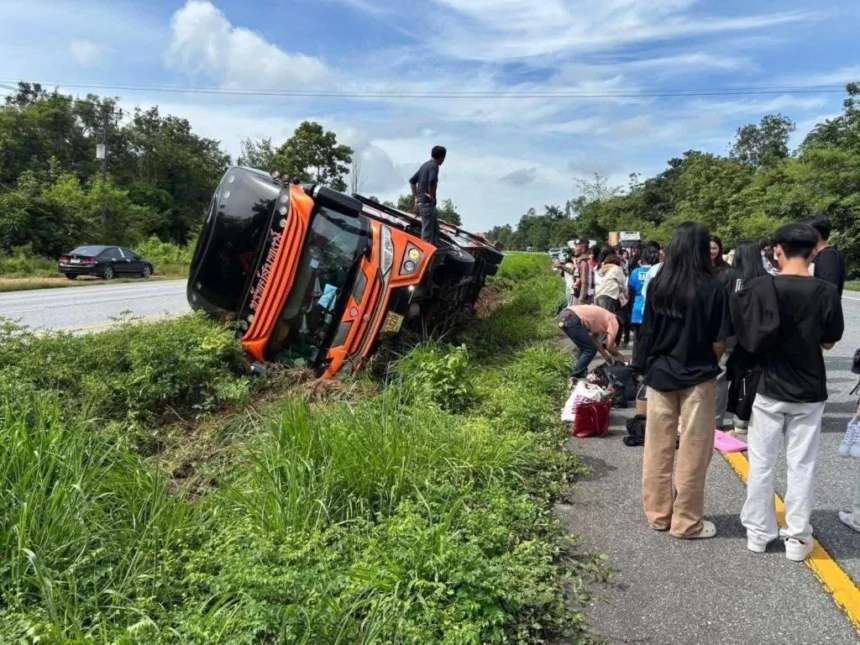UTTARADIT — A serious bus accident nearly turned tragic for 43 people, causing panic and screams inside the vehicle. The bus was carrying 40 students and 3 teachers from Triam Udom School in Phitsanulok, heading to Phayao.
The driver lost control, and the bus skidded into the median on Highway 11 in Uttaradit. Luckily, only two students suffered minor injuries.
On 21 August, the police radio centre at Tron Police Station reported a major accident on Highway 11, northbound, near Nam Ang checkpoint just before the Ban Rai intersection in Moo 10, Nam Ang Subdistrict, Tron District, Uttaradit.
Emergency teams from several agencies rushed to the scene to help.
At the site, an orange bus with licence plate 30-0429 Phitsanulok was found off the road. The bus was carrying students and teachers from Northern Triam Udom School in Phitsanulok, travelling to Phayao. It veered off the road and ended up in the median.

Fortunately, only two people were slightly hurt and received first aid from Nam Ang rescue staff. While officers managed the traffic, they also searched the bus for any illegal items, but found nothing suspicious. Traffic soon returned to normal.
Thailand faces a significant number of bus accidents each year, and double-decker buses cause particular concern. Their tall build gives them a higher centre of gravity, which makes them more likely to tip over on steep or twisting roads.
A major crash in Prachuap Khiri Khan in December 2023 showed the danger of these vehicles. A double-decker hit a tree, resulting in 14 deaths and 32 injuries. After this tragedy, the government planned to phase out double-decker buses within four to five years by letting current licences run out without renewal.

Another serious accident happened in Prachin Buri in February 2025, killing 18 people and injuring 23 after the brakes failed.
This led to a ban on double-decker buses on seven routes known for high risk, including Chiang Mai-Doi Nang Kaew and Mae Hong Son-Mae Teep. Yet another crash in April 2025 in Prachin Buri killed seven and left 40 hurt, keeping safety worries in the spotlight.
Problems with bus safety are often linked to poor maintenance, overworked drivers, and low-quality bus construction. Many buses do not pass slope tests; in some years, up to 45 percent fail.
The lower cost of locally built double-deckers, which sell for 3 to 4 million baht compared to 7 to 8 million for standard buses, comes at a price. Builders sometimes use poor materials, adding to the danger.
The Transport Ministry has rolled out more inspections, required seat belts, and improved brake systems. However, putting these measures in place has been inconsistent.

Starting in July 2025, a 180-day test will lift the ban on six routes to see if added safety checks and improved driver training help, including strict brake checks and better driver training. The public remains unsure, given the number of lives already lost.
Thailand’s road safety remains a problem, with about 20,000 road deaths each year. Weak rules and poor enforcement play a big part.
While taking double-decker buses off the roads may reduce some risk, many people believe that changing driver habits and fixing road issues will need more focus to stop tragedies from happening again.














